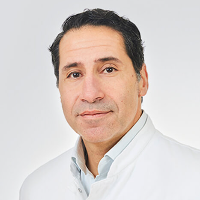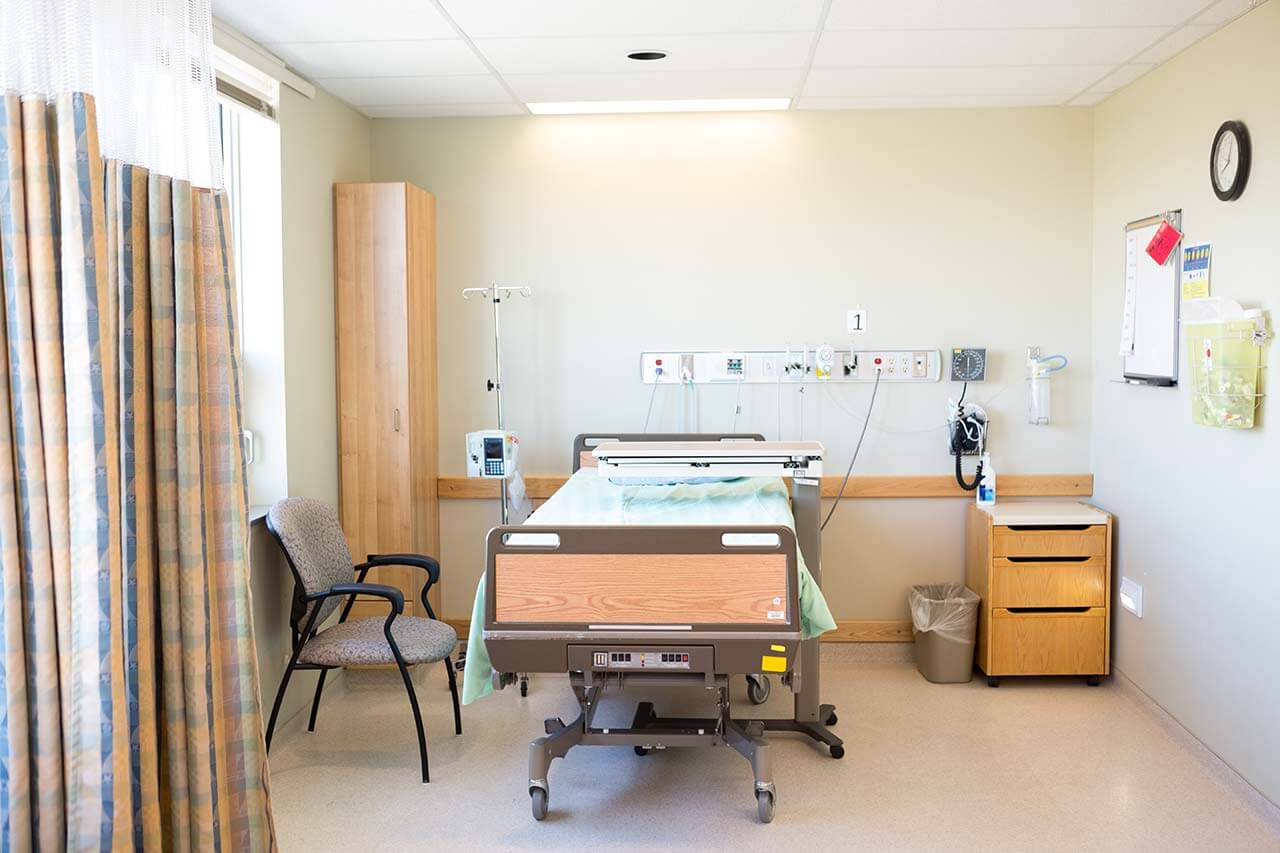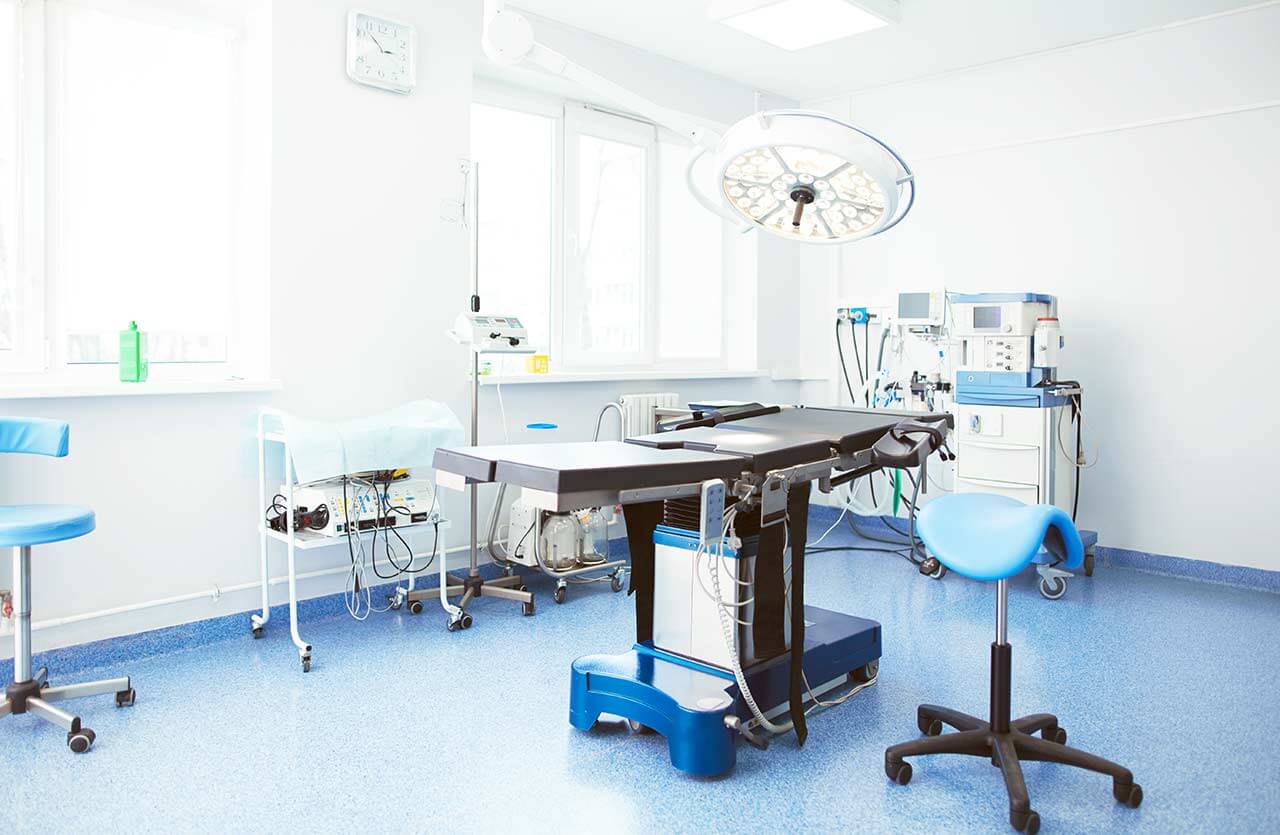
The program includes:
- Initial presentation in the clinic
- clinical history taking
- physical examination
- review of medical records
- laboratory tests:
- complete blood count
- general urine analysis
- biochemical analysis of blood
- TSH-basal
- indicators of inflammation
- indicators blood coagulation
- CT/MRI of the spine
- preoperative care
- removal of spinal cord hematoma
- symptomatic treatment
- control examinations
- cost of essential medicines and materials
- nursing services
- full hospital accommodation
- explanation of future recommendations
Required documents
- Medical records
- X-ray examination, MRI/CT scan (if available)
Service
You may also book:
 BookingHealth Price from:
BookingHealth Price from:
About the department
The Department of Neurosurgery and Spinal Surgery at the Schlosspark Hospital Berlin specializes in modern surgical interventions for diseases of the central and peripheral nervous systems. The department successfully performs surgical procedures for brain and spinal cord tumors, pituitary tumors, brain vascular lesions and malformations, hydrocephalus, spinal diseases, and pathological changes in the peripheral nervous system. The department's doctors have top-class professional skills and long experience, which, combined with advanced technologies, allow them to achieve excellent treatment results. High accuracy and efficiency of surgical treatment are ensured through the preliminary planning of the operation with modern imaging systems and the use of advanced navigation systems. The department's specialists prefer low-traumatic surgery, so minimally invasive, microsurgical, and endoscopic techniques are widely used in the department. Neurosurgeons cooperate closely with neurologists, thereby providing patients with comprehensive medical care. The Head Physician of the department is Prof. Dr. med. Theodoros Kombos.
Brain tumor surgery is one of the priority tasks of the department's specialists. Operations for gliomas, meningiomas, astrocytomas, and neurinomas are regularly performed here. Neurosurgical interventions to resect brain tumors are complex and high-tech operations, as doctors have to not only remove the neoplasm as much as possible but also prevent damage to functionally important areas of the brain. All operations for brain tumors are performed in the department using state-of-the-art computer navigation systems, which allow neurosurgeons to preserve the integrity of the brain structures and prevent the development of irreversible brain damage. The department's doctors use microsurgical techniques to remove small brain tumors, while resecting larger neoplasms requires a craniotomy. A treatment regimen for brain cancer is usually supplemented with chemotherapy and/or radiation therapy. Advanced brain malignancies often spread metastases to the lungs, breast, kidneys, and other organs. In such cases, highly specialized doctors, such as pulmonologists, thoracic surgeons, nephrologists, and breast care specialists, are additionally engaged in the treatment of patients.
The department's neurosurgeons often have to deal with neurovascular diseases. Special attention is paid to surgery for aneurysms, angiomas, cavernomas, and arteriovenous fistulas. A brain aneurysm is a pathological bulging of the wall of an artery that supplies the brain. If an aneurysm ruptures, the blood contained within it spills into the brain, which may lead to severe complications or even death. The department's neurosurgeons strongly recommend patients diagnosed with aneurysms not delay their visit to a doctor and undergo a timely surgical intervention to exclude the aneurysm from the bloodstream before its rupture. The main methods for diagnosing a brain aneurysm include CT, MRI, and angiography. However, in many cases, the patient has no symptoms and is therefore unaware of the presence of an aneurysm. In such cases, the aneurysm is often detected incidentally during a preventive check-up or diagnostics for another disease. As for the treatment, the optimal method is minimally invasive endovascular surgery to exclude the aneurysm from the bloodstream, which helps prevent its rupture and the associated health consequences. When performing the endovascular intervention, the department's neurosurgeon makes a femoral artery puncture, inserts a thin guidewire into it, and directs it to the pathological focus. With miniature instruments, the doctor fills the aneurysm with a platinum microcoil or implants a stent in the damaged section of the artery to strengthen the vascular wall. All surgical manipulations are performed under imaging guidance, which ensures their utmost precision and safety. In cases where brain aneurysm ruptures occur, the department's specialists perform an urgent surgical intervention.
The department has also succeeded in treating hydrocephalus. The pathology develops due to an abnormal accumulation of cerebrospinal fluid in the ventricles of the brain. The most effective treatment for hydrocephalus is shunting. The essence of the intervention involves the removal of excess cerebrospinal fluid from the ventricular system of the brain using a special system of tubes and valves into natural body cavities, such as the abdominal or pleural cavity. Shunting for hydrocephalus is performed using endoscopic techniques and a neuronavigation system, so that the risk of damage to the blood vessels of the brain and neurological deficits in the postoperative period is virtually excluded.
Spinal surgery is an integral part of the department's clinical practice. The department's neurosurgeons offer patients modern surgical interventions for the treatment of cervical, thoracic, and lumbar disc herniations, spinal stenosis, spondylolisthesis, spinal tumors, and infectious spinal diseases. Spinal surgery is performed using sparing microsurgical, minimally invasive, or endoscopic techniques. Following such interventions, patients recover as quickly as possible and can return to their normal lives.
The department's clinical focuses include:
- Neurosurgery
- Surgery for benign and malignant brain tumors
- Surgery for benign and malignant pituitary tumors
- Surgery for neurovascular diseases
- Surgery for brain aneurysms
- Surgery for angiomas
- Surgery for cavernomas
- Surgery for arteriovenous fistulas
- Surgery for hydrocephalus in adults
- Surgery for peripheral nerve compression syndromes
- Spinal surgery
- Surgery for benign and malignant spinal, spinal cord, and spinal nerve tumors
- Surgery for cervical, thoracic, and lumbar disc herniations
- Surgery for spinal stenosis
- Surgery for spondylolisthesis
- Surgery for infectious spinal lesions
- Other surgical options
Curriculum vitae
Higher Education and Professional Сareer
- 1993 Graduation from the University of Bonn, thesis defense, and doctorate.
- 1993 - 1995 Internship, Department of Neurosurgery, Charite University Hospital Berlin.
- 1995 - 1999 Research Fellow, Department of Neurosurgery, Charite University Hospital Berlin.
- 1999 Board certification in Neurosurgery, Berlin Medical Association.
- 1999 - 2011 Managing Senior Physician and Deputy Head in the Department of Neurosurgery at the Charite University Hospital Berlin.
- 2001 Habilitation in Neurosurgery, Free University of Berlin.
- 2007 Extraordinary Professorship, Charite University Hospital Berlin.
- 2012 - 2014 Head Physician, Department of Neurosurgery (focus on spinal surgery), Hildesheim Hospital.
- Since April 2014 Head Physician of the Department of Neurosurgery and Spinal Surgery at the Schlosspark Hospital Berlin.
Memberships in Professional Societies
- German Society of Neurosurgery.
- American Association of Neurological Surgeons.
- American Society of Neurophysiological Monitoring.
- American Clinical Neurophysiology Society.
- Working Group on Spinal Surgery of the German Society for Computer- and Robot-Assisted Surgery.
- German Society for Spine Surgery.
- Professional Association of German Neurosurgeons.
Photo of the doctor: (c) Schlosspark-Klinik GmbH
About hospital
The Schlosspark Hospital Berlin began its work in 1970 and, during this time, has gained an excellent reputation not only in Germany but also in the international medical arena. The Schlosspark Hospital Berlin is an academic hospital of the Charite University Hospital Berlin, which is one of the best medical centers in Europe and throughout the world. The successful clinical practice of the medical facility is based on an advanced medical and technical base, access to the very latest and most effective treatment methods, and the exceptional competence and experience of medical personnel. The hospital is located in the picturesque Charlottenburg Park, away from the hustle and bustle of the city, which contributes to the peace of mind of patients.
The hospital's bed fund includes 340 beds. Structurally, the hospital consists of 12 specialized departments with narrowly focused centers integrated into them, which are responsible for the treatment of a particular group of diseases. More than 14,000 patients are treated annually at the hospital. One of the priorities of the medical facility is emergency medical care. With an annual number of more than 10,000 surgical interventions, including operations of high complexity, the department is particularly interested in surgical treatment.
The hospital's medical team consists of more than 900 employees. The departments at the hospital are headed by professors who are well-known in the medical community and have impressive clinical experience and outstanding professional achievements. In the course of diagnostics and treatment, an individual approach is used for each patient, and his needs and wishes are also taken into account. The hospital pays due attention to patient care during the therapeutic process. Despite state-of-the-art medical equipment and the automation of many processes, a humane and respectful attitude towards the patient is the first priority for the doctors at the hospital. The specialists are always open to dialogue and do their best to achieve the best treatment outcomes.
Photo: (с) depositphotos
Accommodation in hospital
Patients rooms
The patients of the Schlosspark Hospital Berlin live in comfortable rooms with light colors. Each patient room has an ensuite bathroom with a shower and a toilet. The standard patient room includes a comfortable automatically adjustable bed, a bedside cabinet with a pull-out table, a wardrobe, a table and chairs for receiving visitors, a telephone, and a TV. Wi-Fi is available on the territory of the hospital. The hospital also offers enhanced-comfort rooms with a more exquisite design.
Meals and Menus
The patient and their accompanying person are offered three meals a day: breakfast, lunch, and dinner. A new menu is prepared for patients each week. Only high-quality and fresh products are used for cooking meals. The menu includes dietary and vegetarian dishes. The patient will be offered an individual menu if necessary.
There is a cozy cafe on the ground floor of the hospital that serves full breakfasts, a wide range of hot and cold drinks, delicious desserts, and snacks.
Further details
Standard rooms include:
Accompanying person
The accompanying person may stay with you in the patient room or at the hotel of your choice during the inpatient program.
Hotel
You may stay at the hotel of your choice during the outpatient program. Our manager will help you choose the best option.




